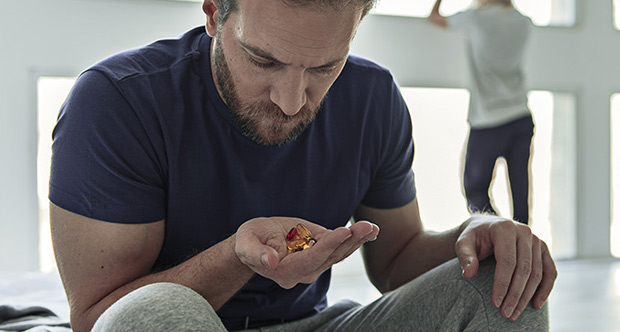Hallucinogen Dependence

Hallucinogen Dependence

Hallucinogen Dependence

Hallucinogen dependence is the dependence on hallucinogens to meet the psychological need of not being able to function properly without them. A hallucination is a perception that has qualities of real perception without an external cause. Hallucinations occur while awake and are not under voluntary control.
A hallucinogen is a psychoactive substance that can alter a person’s mood, behavior, and perception of reality, time, and space; and the hallucinations can range in severity from mild to intense. There are a variety of “natural” (e.g. the peyote plant) and synthetic (e.g. LSD) hallucinogens available. The high lasts anywhere from 15 minutes to 12 hours, depending on the type of hallucinogen used.
The common classifications for hallucinogens are:
- Psychedelics or classic – like LSD and psilocybin, usually swallowed or ingested
- Dissociatives – like ketamine and PCP. These cause users to feel disconnected from their body or not truly present, usually swallowed or snorted. PCP can also be injected or inhaled / vaped.
- Deliriants – like diphenhydramine. Deliriants cause delirium or an acute confusional state, and this primary effect distinguishes them from psychedelics and dissociatives, which are characterized by clearer states. Usually swallowed.
Effects of hallucinogens
Hallucinations can be associated with drug use, sleep deprivation, psychosis, neurological and psychiatric disorders, and delirium tremens — a complication of extreme amounts of alcohol intake.
Hallucinogens cause physical, mental, and behavioral effects which vary depending on the hallucinogen of choice.
Physical
Psychological
Hallucinogen dependence, like other types of drug dependence, is characterized by increased usage of the drug to achieve the desired effect, continued usage, or an inability to stop using despite an awareness of the harm to the user and/or others, intense craving that causes the user to spend most of the time procuring and using the drug and recovering from the effects, and withdrawal symptoms upon discontinuation.
Diagnosis of Hallucinogen Dependence
Hallucinogen dependence is diagnosed if its use is causing significant impairment or distress in two or more of the following ways.
Hallucinogen complications:
Complications of hallucinogen dependence can happen even after only one use and include:
Hallucinogen dependence can cause impairment in functioning at home, work, school, or social settings and can place a tremendous amount of stress and strain on interpersonal relationships.
Mixing a hallucinogen with a depressant such as alcohol has put users into a coma. While high, users might also be unable to mentally tie consequences to actions and can die from poor choices.
Lifetime hallucinogen use has been associated with personality and substance use disorders but has not been shown to be associated with other mental disorders. People who experience hallucinogen-induced psychosis are at increased risk of developing schizophrenia.
Treatment for Hallucinogen Dependence:
Treatment options available for hallucinogen dependence include:
Effects of hallucinogens
Hallucinations can be associated with drug use, sleep deprivation, psychosis, neurological and psychiatric disorders, and delirium tremens — a complication of extreme amounts of alcohol intake.
Hallucinogens cause physical, mental, and behavioral effects which vary depending on the hallucinogen of choice.
Physical
Psychological
Hallucinogen dependence, like other types of drug dependence, is characterized by increased usage of the drug to achieve the desired effect, continued usage, or an inability to stop using despite an awareness of the harm to the user and/or others, intense craving that causes the user to spend most of the time procuring and using the drug and recovering from the effects, and withdrawal symptoms upon discontinuation.
Diagnosis of Hallucinogen Dependence:
Hallucinogen dependence is diagnosed if its use is causing significant impairment or distress in two or more of the following ways.
Hallucinogen complications:
Complications of hallucinogen dependence can happen even after only one use and include:
Hallucinogen dependence can cause impairment in functioning at home, work, school, or social settings and can place a tremendous amount of stress and strain on interpersonal relationships.
Mixing a hallucinogen with a depressant such as alcohol has put users into a coma. While high, users might also be unable to mentally tie consequences to actions and can die from poor choices.
Lifetime hallucinogen use has been associated with personality and substance use disorders but has not been shown to be associated with other mental disorders. People who experience hallucinogen-induced psychosis are at increased risk of developing schizophrenia.
